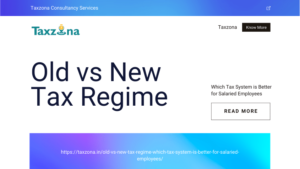What are accounting concepts?
Concepts in accounting are the theoretical building blocks of the study of economics, finance, and accounting. Accounting terminology like these facilitate the methodical recording of monetary data and transactions for people, firms, and other organizations.
These ideas serve as frameworks for accountants to work within when putting together financial papers for clients. Firms typically adhere to the accounting principles, rules, and regulations of the jurisdictions in which they are based. Companies can more correctly report financial transactions with the help of these concepts and norms, which are all part of the principles.
Accounting’s foundational concepts and principles provide a common language for talking about and analyzing a wide variety of different financial scenarios, frameworks, and theories. The ideas are critical because they can shed light on the particulars of intricate transactions and help settle disagreements that may occur when compiling financial statements.
These ideas may be considered “what accountants do,” whereas accounting principles would be considered “how accountants do it.”
Why are concepts necessary in accounting?
Professionals in the accounting field keep track of a business’s money flows. Managers, investors, analysts, and regulators can all benefit from the information provided by periodic summaries of these transactions or financial reports.
Following different methods for preparing and producing summaries and statements by each company may lead to inconsistencies and a greater opportunity for fraud and financial mismanagement. To get around this, governments, regulators, and accounting organisations have come up with a universally accepted set of accounting standards.
What is the difference between a concept and convention?
What we mean by “accounting principles” is a combination of concepts and established practises. Business organisations must adhere to certain rules and principles known as accounting concepts in order to properly manage the accounts used to keep track of money spent and received.
There is a complementary legal and regulatory structure that acknowledges these principles on the part of government and financial institutions and ensures their legal recognition. One of the main advantages of these ideas is that they facilitate the recording of monetary transactions based on evidence, with minimal room for personal or professional bias or gain. Standards can be established, potential disputes can be settled, and fraud and irregularities can be avoided with the help of accounting principles.
When preparing financial statements, businesses often adhere to a set of rules known as “accounting norms” that have evolved over time. Conventions, as contrast to abstract ideas, are a standard operating method adhered to by all businesses worldwide. Financial statement preparation is made easier with the help of accounting conventions.
It is possible for accounting standards to evolve as new ideas and principles are introduced. Adherence to accounting conventions guarantees uniformity in how firms record their financial transactions, making it simple for interested parties to compare and contrast the financial health of various enterprises using a common yardstick.
11 important concepts in accounting
Concepts used in accounting are divided into two broad categories: those based on assumptions and those based on principles. All businesses, whether run as a single proprietorship, a partnership, or a public or private company, follow the same basic rules and principles while keeping financial records. Some of accounting’s key ideas include:
1. Business entity concept
The idea of a company as a “economic entity,” “separate entity,” or “commercial entity” holds that it can function independently of its owner. There is a prohibition against including the owner’s individual income, expenditures, debts, and assets in the company books. It’s clear and simple to use, and it helps keep tabs on a company’s money flows.
The owner’s personal money is protected, and the owner’s credit is strengthened. It’s a more accurate depiction of money coming in and going out. This separation allows stakeholders and creditors to make sound business decisions independent of the owner’s personal financial situation and instead focus on the company’s performance.
2. Going concern concept
According to the going concern principle, accountants must compile financials under the presumption that a company will be able to run its current operations into the foreseeable future. One year from the end of the reporting period is used as the benchmark for what is considered a “foreseeable future” under this notion.
The going concern concept of accounting cannot be used if the owner or management of a company intends to shut it down entirely. In cases when any of the following apply, accountants are no longer required to use the going concern concept:
- incapable of distributing profits
- Due to losses and a lack of operating cash flow, the company is unable to secure financing from banks and other financial institutions.
- struggling financially and unable to repay essential debts
- threat of being targeted by unfavorable legal or regulatory action
3. Money measurement concept
A presumption in accounting, this principle requires businesses to solely keep track of monetary transactions. They don’t include something in their annual financial statement if they can’t put a price on it. Although these dealings have an impact on a company’s bottom line, they may not be reflected in the financials due to the difficulty in turning them into cash.
Competence of employees, quality of products, efficiency of workers, market mood, company output, and happiness of stakeholders are all examples of non-monetary value.
4. Accounting period concept
The concept of an accounting period establishes a time frame throughout which a company is required to maintain financial records and publish financial reports for the scrutiny of its internal and external stakeholders. A company’s fiscal year may coincide with its accounting period.
A business may choose to report on their financial health every three or six months internally, or they may choose to generate monthly financial statements in order to better analyse their cash flow. Internal reporting can be done on whatever time frame is most practical for management, but reporting to investors, governments, and tax authorities is often done on a yearly basis.
5. Accrual concept
A company’s ability to properly account for monetary and credit transactions is governed by the idea of accrual. To adhere to this principle, a company must record monetary transactions in the same period that they occur. It makes no difference if the company pays or gets cash at the time of the transaction or if the payment is made in cash at some later date.
If a business decides to make a purchase on credit, the transaction is recorded when the goods are received rather than when payment is made. Income, expenditures, liabilities, and receivables can all be more precisely recorded and reported with this method in place. Today, the accrual basis is used by every single accounting system.
6. Revenue realization concept
Whether or whether the seller has received payment, under the revenue realisation or revenue recognition principle, revenue is recorded. During a transaction, the buyer becomes the owner of the product and the seller becomes the seller.
When a sale is made, the seller marks their books as “receivable” and enters the buyer’s name as the debtor. When the money is finally paid, the accountant will make a new entry to reflect that.
7. Full disclosure concept
According to the full disclosure principle, a company must provide all relevant information in its financial statements and reports for the use of investors, tax authorities, and auditors. The idea behind this term is to exchange relevant financial data with interested parties including lenders, creditors, shareholders, and customers.
Revenue, depreciation, inventories, taxes, earnings, stock value, leases, and liabilities are all covered by the policies governing disclosure.
8. Dual aspect concept
It is based on the belief that every business transaction has an impact on two different ledgers. Both factors must be recorded by a company for reliable financial reporting. There is always someone on the giving end or the receiving end of money transactions.
An inaccurate accounting record could result from an accounting procedure that fails to accurately reflect both. The dual aspect principle underpins the double-entry system of bookkeeping, which is currently the de facto standard for auditing and taxes purposes.
9. Materiality concept
The materiality concept provides rules for determining if a particular item of financial data can have a meaningful impact on a reader of financial statements. On the basis of this idea, an accountant or a company might eliminate inconsequential financial dealings that won’t have much of an impact on the books in the end.
This idea can be interpreted in a number of different ways, and the criteria for applying the materiality notion change depending on the size of the firm. In the final accounts, a major company may round to crores, whereas a smaller company may round to lakhs.
10. Verifiable objective evidence concept
A company is only allowed to keep track of transactions for which they have supporting documents. Lack of reliable documentation can make a transaction appear shady and widen the possibilities of financial wrongdoing. A retail worker, for instance, may produce a bill for purchases and sales, backed up by invoices for those transactions.
11. Historical cost concept
Assets and liabilities may be recorded at their historical cost rather than their present market or selling value, as per the historical cost principle. It’s useful for keeping records that can be relied upon to be accurate and truthful. There may be accounting inconsistencies if the current value of an entity is used.
It is Very important for an Accountant to know these concepts very well, before undertaking any accounting work. We very well train our employees to make them understand these concepts and implement and follow the same while working. In case of any other Query Feel free to contact us and ask any Queries with respect to accounting process and any related queries and services on +91 98204 44477 or can write to us at taxzona@gmail.com.
Read also: {What Is Business Accounting? 21 Tips For Business Owners}









